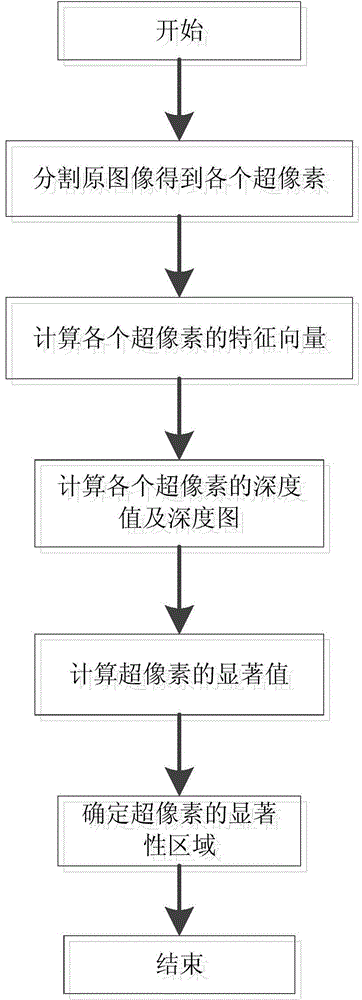Extraction method of visual saliency area based on monocular depth map
An extraction method and depth map technology, which are applied in the field of extraction of visual saliency regions, can solve the problems that complex image calculation is difficult to achieve satisfactory quality, large amount of calculation, blurred edges, etc., and achieve fast and accurate automatic recognition, accurate results, The effect of reducing noise interference
- Summary
- Abstract
- Description
- Claims
- Application Information
AI Technical Summary
Problems solved by technology
Method used
Image
Examples
Embodiment Construction
[0030] The present invention will be further described in detail below in conjunction with the embodiments and the accompanying drawings, but the embodiments of the present invention are not limited thereto.
[0031] Such as figure 1 , a method for extracting visually salient regions based on a monocular depth map, comprising steps in the following sequence:
[0032] A. Depth map calculation stage
[0033] 1. Segment the image, and classify the spatially close and similar color, brightness, and texture features in the image into a pixel block, and the number of pixels contained in these pixel blocks is the same. These blocks of pixels are called superpixels. The adjacent regions between different superpixels will have significant differences with a large probability.
[0034] 2. Establish a feature vector for each superpixel, and calculate the relationship between it and the feature vectors of adjacent superpixels. This method considers two types of feature vectors, one is...
PUM
 Login to View More
Login to View More Abstract
Description
Claims
Application Information
 Login to View More
Login to View More - R&D
- Intellectual Property
- Life Sciences
- Materials
- Tech Scout
- Unparalleled Data Quality
- Higher Quality Content
- 60% Fewer Hallucinations
Browse by: Latest US Patents, China's latest patents, Technical Efficacy Thesaurus, Application Domain, Technology Topic, Popular Technical Reports.
© 2025 PatSnap. All rights reserved.Legal|Privacy policy|Modern Slavery Act Transparency Statement|Sitemap|About US| Contact US: help@patsnap.com

